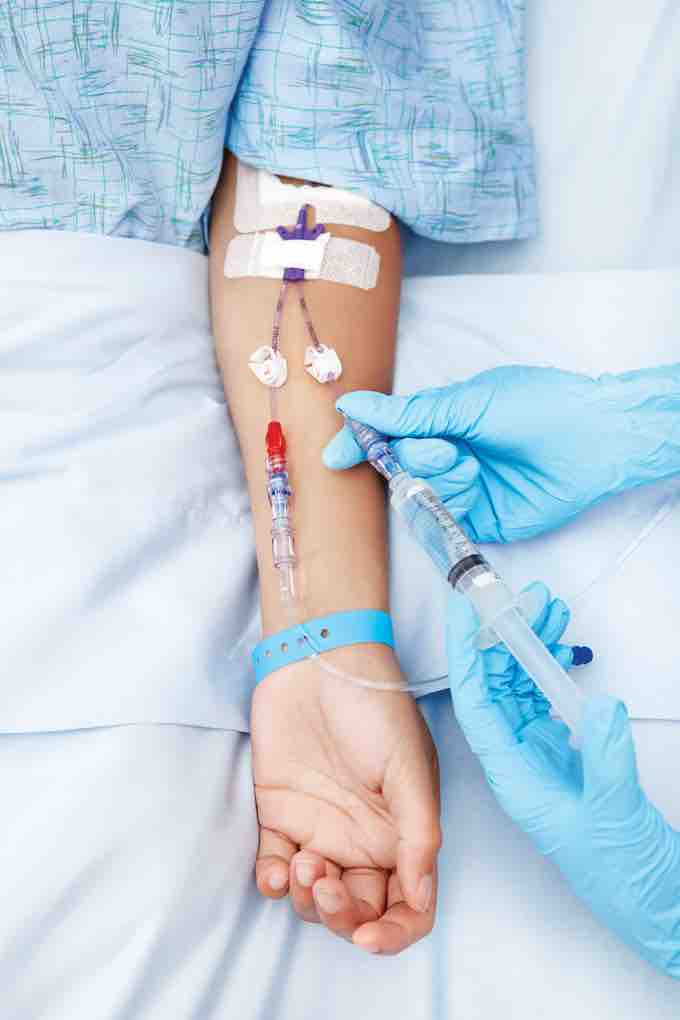In physiology and medicine, dehydration (hypohydration) is defined as the excessive loss of body fluid. It is literally the removal of water from an object. However, in physiological terms, it entails a deficiency of fluid within an organism. Much of the physiological effects of dehydration is due to the changes in ion concentration that may occur as a result of the dehydration. Alternatively, hypovolemia may occur due to loss of blood volume itself.
Dehydration
There are three types of dehydration that differ based on the type of change in ion concentrations: hypotonic (primarily a loss of electrolytes, sodium in particular), hypertonic (primarily a loss of water), and isotonic (equal loss of water and electrolytes). Hypotonic dehydration causes decreased plasma osmolarity, while hypertonic dehydration will cause increased plasma osmolarity. Isotonic dehydration will not change plasma osmolarity, but it will reduce overall plasma volume. Isotonic dehydration is the most common type of dehydration.
Further complications may also occur. In hypotonic dehydration, intravascular water shifts to the extravascular space, exaggerating intravascular volume depletion for a given amount of total body water loss. Neurological complications can occur in hypotonic and hypertonic states. The former can lead to seizures, while the latter can lead to osmotic cerebral edema upon rapid rehydration.
Hypovolemia
Hypovolemia is specifically a decrease in volume of blood plasma. Furthermore, hypovolemia defines water deficiency in terms of blood volume rather than the overall water content of the body.
Hypovolemia is a cause of hypovolemic shock. Shock is any condition in which the body's fluids are unable to properly circulate and oxygenate the major organs of the human body, causing compensatory mechanisms to activate, which cause further bodily harm as the body's metabolism is maintained for a while longer. In the case of hypovolemic shock, tissue metabolism is impaired due to a lack of blood volume, making it difficult for red blood cells to reach all of the tissues of the body. It is most often caused by severe vomiting, diarrhea, blood loss, or hemorrhage. Other forms of shock with similar symptoms may be due to problems in the heart (cardiogenic) or bacterial infection (septic).
Treatment Options
To treat minor dehydration water intake must be increased, while the source of fluid loss must be reduced or stopped altogether. Plain water restores only the volume of the blood plasma, inhibiting the thirst mechanism before solute levels can be replenished. Solid foods can contribute to fluid loss from vomiting and diarrhea. In more severe cases, correction of a dehydrated state is accomplished by the replenishment of necessary water and electrolytes through oral rehydration therapy or fluid replacement by intravenous therapy (an IV drip). As oral rehydration is easier to provide, it is the treatment of choice for mild dehydration. Solutions used for intravenous rehydration must be isotonic or hypotonic. Pure water injected into the veins will cause the breakdown (lysis) of red blood cells, which could cause other problems.

IV fluid and electrolyte administration
Intravenous administration of fluid is one effective treatment of dehydration in humans.